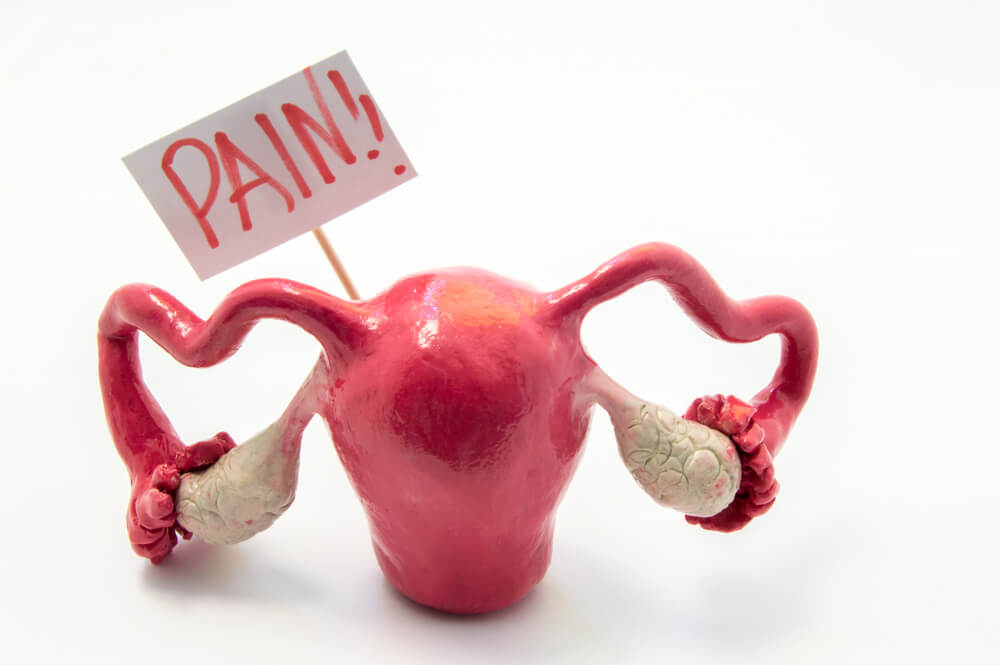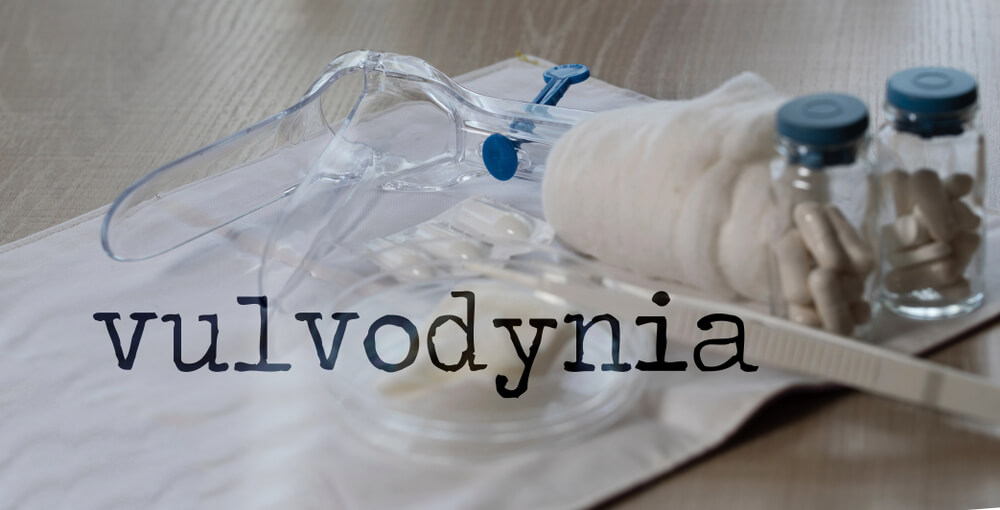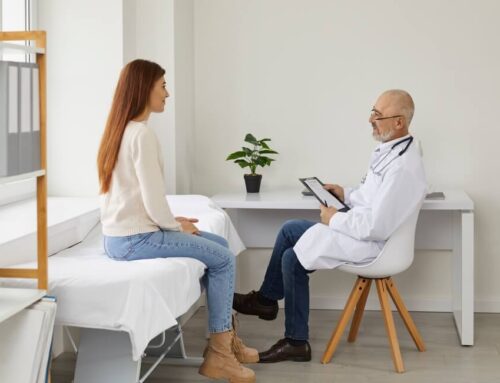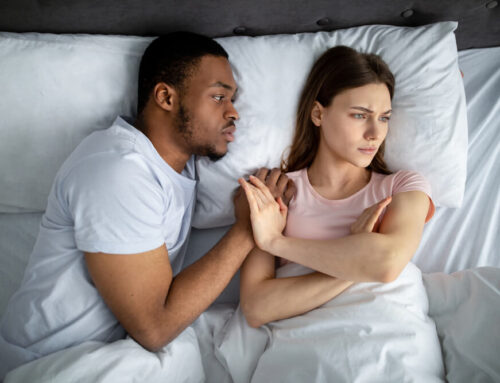The terms vulvodynia and vulvar pain refer to the same condition: chronic pain in the outer female genitalia or vulva. It typically lasts longer than three months. Even though vulvodynia is the leading cause of painful sexual intercourse among pre-menopausal females, it’s difficult to determine how widespread vulvar pain really is.
Many women find it difficult to discuss the issue with their health practitioner. And if they ever muster the courage to do so, it’s not uncommon for a GP to misdiagnose the problem. Fortunately, there is ongoing research into finding better ways to treat vulvar pain, and there are many highly trained doctors who treat vulvodynia.
Symptoms and Types of Vulvodynia
Although the vulva might look normal, the patient will experience intermittent or ongoing pain in and around the vagina and vulva. This pain could be just a soreness, or it could be stinging, burning, or at times it might feel like the vagina is throbbing. Sometimes touch can trigger pain, for example, when a woman inserts a tampon or has sex. In some cases, vulvodynia also causes itching and rawness.
Generalized vulvodynia. If the patient experiences pain in different parts of the vulva at different times, medical experts call it generalized vulvodynia. It can happen now and again, or constantly. Pressure or touch might or might not exacerbate the pain.
Localized vulvodynia. When the pain takes the form of a burning sensation and is limited to a specific part of the vulva, it is called localized vulvodynia. A typical example is a stabbing pain in the vaginal area. This kind of vulvar pain is often triggered by pressure or touch, for example, sitting in the same position for a long time or having sex.
Cyclic vulvitis. If the vulvar pain peaks during your menstrual cycle and subsides afterward, doctors refer to it as cyclic vulvitis. In these cases, the pain will typically be at its worst right before the start of your monthly menstruation.
Vestibulodynia. Vulvar pain concentrated at the vestibule (i.e. the opening) of your vagina is known as vestibulodynia in medical circles.
The Implications of Living With Vulvodynia

Having to live with a nagging pain in your external genitalia can reduce your sex drive and cause depression and irritability and negatively affect your relationships. Apart from that, it is also a condition that many women find hard to discuss with anyone, including their doctor.
Some women with vulvodynia start to feel they have lost control of their lives, and they become unable to enjoy the things they always loved to do. If this sounds like you, the time has arrived to get the help and support you deserve.
When to Discuss Vulvodynia With Your Doctor
If you experience persistent sharp pain in your private area, you should visit a doctor who has expertise in this field. It is very unlikely that vulvodynia will go away on its own, and several of the potential remedies require a prescription.
The doctor will first have to rule out a number of other possible causes. They will discuss your symptoms with you and will most likely gently touch your external genitalia with the tip of a cotton bud to check whether or not this causes sharp pain in your private area. Taking a swab might also be necessary to ensure your symptoms are not caused by another health problem, e.g., an infection.
Sometimes the doctor might decide to do a biopsy. It involves taking a small piece of tissue from a specific area for further examination. They will only take this route if they notice something unusual like, e.g., a sore.
If the pain does not go away after the doctor’s visit within a reasonable amount of time and you still feel your vagina is throbbing or experience a stabbing pain in the vaginal area, ask the GP to refer you to a clinic are doctors who specialize in vulval matters.
What Treatment Options Are Available for Vulvodynia?
One or more of the following treatments could provide relief from vulvodynia symptoms and help to limit its destructive effects on your life:
Medication Prescribed by a Doctor
You will often not get much relief from vulvodynia symptoms such as your vagina throbbing by using over-the-counter painkillers such as Tylenol. There are, however, quite a few prescription medicines and medical options that could provide relief from the discomfort of stabbing pain in your vaginal area. Examples include:
Injections. If you experience pain in particular regions of your vulva, injecting steroids and/or local anesthetics into a nearby nerve sometimes offers temporary relief.
Antidepressants. The doctor might prescribe antidepressants such as nortriptyline or amitriptyline to help you deal with the emotional impacts of the condition. These could, however, make you experience side effects such as a dry mouth, weight gain, and drowsiness.
Anti-epilepsy medication. Pregabalin and Gabapentin, both used to treat epilepsy, could provide relief from vulvodynia symptoms. Side effects might include drowsiness, dizziness, and weight gain. The doctor will most likely first prescribe a low dose. This will gradually be increased until the vulvodynia symptoms go away.
Therapy And/Or Counselling
This type of treatment is sometimes prescribed to assist women with coping with the effects of vulvodynia on their life. It can include the following:
CBT or cognitive behavioral therapy is a kind of treatment that tries to help people manage their issues by modifying how they think and act. It focuses on the problems and challenges you experience and strives to find practical ways to develop a better state of mind.
Psychosexual counseling often proves to be beneficial when the sharp pain in the private area starts to impact the intimacy between two partners negatively. This type of therapy tries to address anxiety, fear about sex and restore a sexual relationship with your partner.
Surgery to Remove a Part or Parts of the Patient’s Vulva
This type of surgery is only carried out in isolated cases. The pain and vaginal throbbing tend to return after a while, which is why doctors do not often recommend it.
Physiotherapy to Help With Muscle Relaxation
A professional physiotherapist will teach you how to do pelvic floor exercises such as squeezing/releasing the muscles of your pelvic floor. The aim here is to relax the muscles surrounding the vagina and thereby relieve the sharp pain in the private area.
A different technique that helps to desensitize and relax the vaginal muscles requires using vaginal trainers, i.e. smooth cones of different sizes and lengths (from small to large) inserted into the vagina.
Sometimes the physiotherapist might suggest transcutaneous electrical nerve stimulation (TENS) to help alleviate the pain. It involves using a machine that delivers a relatively mild electrical current to the area where the pain is experienced.
OTC Lubricants and Gels

You can purchase tubes of lidocaine gel, either as an ointment or cream, at your local pharmacy – but it’s recommended that you first get advice from a medical professional before doing this, particularly if you experience stabbing pain in the vaginal area. Also, take great care with reading the instructions.
Applying this around 20 minutes before sex may relieve the discomfort. To prevent the gel from getting on your sexual partner, either wear a condom or wipe yourself clean before sex. If you experience pain more or less constantly, apply the gel now and again during the day and even at night.
Aqueous cream and vaginal lubricants could also help soothe the painful region and moisturize the vulva.
Final Thoughts on Getting Treatment for a Painful Vulva
A painful vulva is a complicated and rather sensitive topic. We tried to cover this article’s most important aspects of this condition. Do you think we succeeded, or did we miss something important? You are welcome to visit our website and contact us from there with any suggestions or questions you might have or make an appointment with one of our highly trained physicians.





